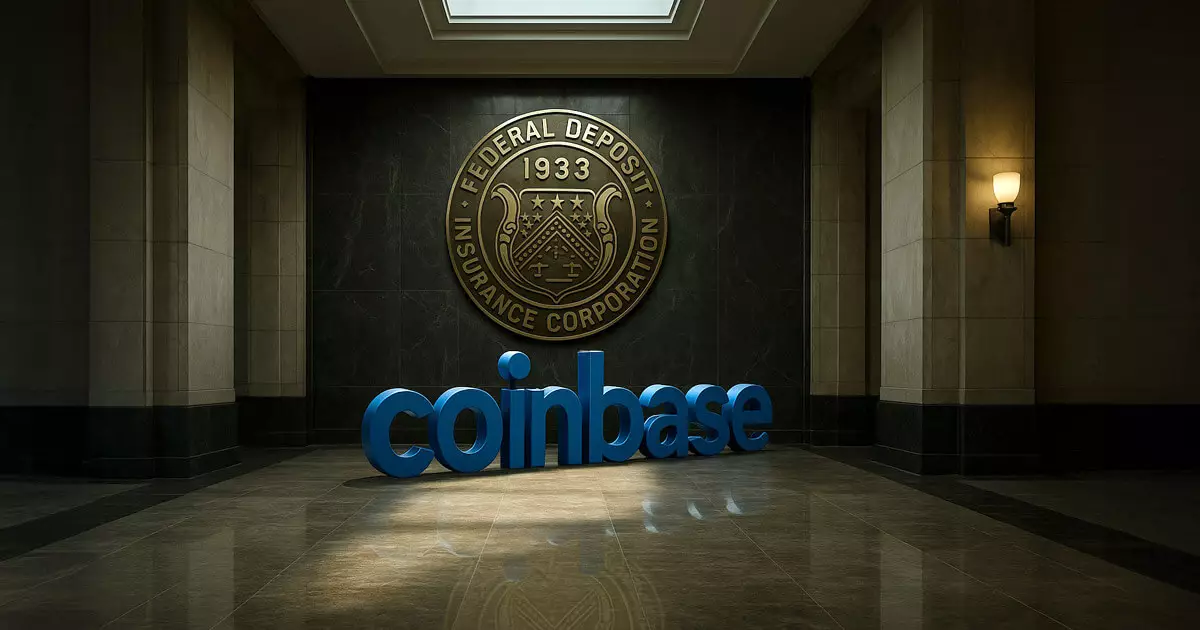In a marked display of corporate accountability, Coinbase has taken a bold stance against the Federal Deposit Insurance Corporation (FDIC), challenging its recent request to delay the release of crucial documents pertaining to the alleged debanking of cryptocurrency firms. Coinbase argues that the FDIC’s move is not only unwarranted but also illustrates a disturbing pattern of bureaucratic hesitation. On April 10, the Chief Legal Officer of Coinbase, Paul Grewal, voiced his concerns, labeling the FDIC’s extension plea as “absurd.” The request for a mere 16-day reprieve raises eyebrows about the overall transparency expected from regulatory agencies, especially in an industry fraught with uncertainty and skepticism.
The Absurdity of Extended Delays
What stands out in this ongoing saga is how the FDIC seeks a 16-day extension to ponder its next steps, while Coinbase maintains that it has already waited long enough for the agency to comply with Freedom of Information Act (FOIA) obligations. Sixteen days may seem trivial, but the accumulation of such delays compounds distrust, engendering the notion that regulatory bodies may be deliberately obstructing transparency. In a system that demands accountability from private enterprises, why should public agencies lag behind in their responsibilities? This paradox highlights the FDIC’s questionable commitment to facilitating a healthy dialogue between cryptocurrency and traditional banking institutions.
Redacted Documents: A Barrier to Transparency
Coinbase also raises alarming concerns over the heavily redacted nature of the documents already submitted by the FDIC, which render them devoid of substantial insight. What purpose does such censorship serve? It appears that the agency may be playing a game of smoke and mirrors, aiming to obscure insights rather than unveil the truth about its involvement in the debanking of crypto firms. The documents, rather than shedding light on the matters at hand, leave more questions than answers, stifling what should be a constructive process of communication in a rapidly evolving financial landscape.
Unveiling the Truth About Crypto Debanking
The significance of Coinbase’s legal maneuvering cannot be overstated, as it represents the broader struggle for transparency within the cryptocurrency realm. Earlier revelations from court-ordered documents exposed internal FDIC communications suggesting that the agency pressured banks to sever ties with digital asset companies. Such tactics, framed as cautionary measures, reek of overreach, imposing unjust burdens on the nascent crypto sector under the guise of regulatory compliance. Coinbase’s quest for transparency is not merely a self-serving exercise; it is a necessary push to unveil the ramifications of government actions that could stifle innovation.
The Rationale for a Transparent Future
As the legal drama unfolds, the stakes grow ever higher. The trend of governmental overreach poses dire consequences not just for cryptocurrency establishments but also for the future of financial integrity. In an environment that champions innovation, the necessity for open dialogue and regulatory clarity cannot be underestimated. It is imperative for entities like the FDIC to honor their obligations and ensure that their actions are in line with their mission of protecting depositors, rather than stifling emerging industries. A collaborative relationship between regulators and crypto firms could pave the way for a more robust and inclusive financial ecosystem, benefitting society at large.

